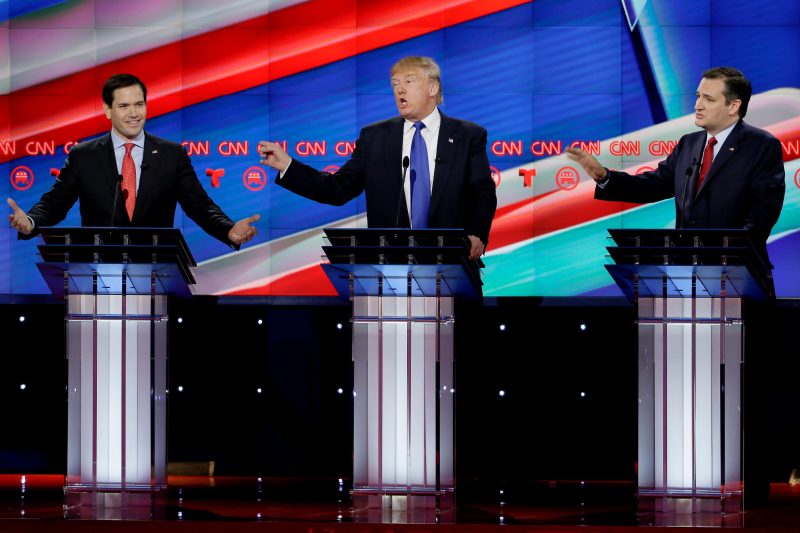The 2016 U.S. presidential primary season was unlike any other in recent memory, with its uncanny similarity to a supermarket tabloid gutter fight. The Republican Party found itself thrust into a theatrical and often tawdry spectacle, with then-candidate Donald Trump at the center of the storm.
Trump’s unorthodox approach to politics transformed what should have been a serious and dignified process into a raucous, ratings-driven circus. Traditional political discourse was replaced by a frenzied media circus, as Trump’s bombastic style and flair for spectacle captivated audiences and dominated news cycles.
The primary debates in particular became must-watch television, with Trump’s provocative remarks and unfiltered commentary dominating the airwaves. Instead of policy discussions and substantive debates, the media focused on the latest outrageous soundbite from the real estate mogul turned reality TV star turned political juggernaut.
Trump’s larger-than-life persona and knack for showmanship played into a narrative that transcended conventional political wisdom. His supporters saw him as a refreshing antidote to the establishment, while his detractors decried his divisive rhetoric and political incorrectness.
As the primary season wore on, Trump’s unconventional tactics began to pay dividends. He captured the attention of disaffected voters who were disillusioned with the political establishment and hungry for a candidate who spoke their language. His blunt, no-nonsense approach resonated with a segment of the population that felt ignored and marginalized by traditional politicians.
Trump’s campaign strategy revolved around creating controversy and generating headlines, and he executed it with ruthless efficiency. From attacking his opponents with childish insults to stoking fears about immigration and trade, Trump masterfully manipulated the media landscape to his advantage.
The 2016 primary season was a watershed moment in American politics, signaling a shift towards a more polarized and sensationalized political discourse. Trump’s success laid bare the power of celebrity and spectacle in modern politics, as well as the vulnerabilities of a political system woefully unprepared for a candidate like him.
In the end, Trump’s victory in the Republican primary was a triumph of style over substance, of theatrics over policy. He tapped into a deep well of frustration and discontent within the electorate, harnessing it to propel himself to the forefront of the political stage.
As the dust settled and Trump emerged as the Republican nominee, the true impact of his unorthodox campaign began to dawn on observers. The 2016 primary season may have resembled a supermarket tabloid gutter fight, but its consequences would be felt for years to come, reshaping the political landscape in ways no one could have predicted.
